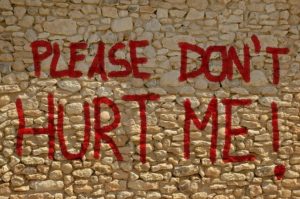Possession of Stolen Property (PSP), Robbery, B&E, Home Invasion
 It is an offense in Canada to possess property knowing that the property was stolen. This offense is commonly referred to as “possession of stolen property” or as “PSP” and is prosecuted under Section 354 of the Criminal Code, which states:
It is an offense in Canada to possess property knowing that the property was stolen. This offense is commonly referred to as “possession of stolen property” or as “PSP” and is prosecuted under Section 354 of the Criminal Code, which states:
354. (1) Every one commits an offense who has in his possession any property or thing or any proceeds of any property or thing knowing that all or part of the property or thing or of the proceeds was obtained by or derived directly or indirectly from the commission in Canada of an offense punishable by indictment; or an act or omission anywhere that, if it had occurred in Canada, would have constituted an offense punishable by indictment.
Robbery
The offense of robbery involves the use of violence or threats of violence to facilitate the theft of property. The offense is set out in Section 343 of the Criminal Code, which states:
343. (1) Every one commits robbery who steals, and for the purpose of extorting whatever is stolen or to prevent or overcome resistance to stealing, uses violence or threats of violence to a person or property; steals from any person and, at the time he steals or immediately before or immediately thereafter, wounds, beats, strikes or uses any personal violence to that person; assaults any person with the intent to steal from him; steals from any person while armed with an offensive weapon or imitation thereof.
Robbery is an indictable offense and carries a maximum sentence of imprisonment for life. If firearms are involved in the offense, minimum sentences apply.
Breaking and Entering
 “Breaking and entering” is an offense set out in Section 348 of the Criminal Code. There are two types of breaking and entering: breaking and entering into a “dwelling house” and breaking and entering into a place other than a “dwelling house.” The only difference between the two is the place where the offense occurred and the maximum punishment upon conviction.
“Breaking and entering” is an offense set out in Section 348 of the Criminal Code. There are two types of breaking and entering: breaking and entering into a “dwelling house” and breaking and entering into a place other than a “dwelling house.” The only difference between the two is the place where the offense occurred and the maximum punishment upon conviction.
The offense of breaking and entering into a dwelling house relates to breaking and entering into private residences or homes. It is the more serious of the two for obvious reasons. The sanctity of the home is recognized by the law and a violation of it is considered very serious.
In fact, breaking and entering into a dwelling place can only be prosecuted by indictment and carries a maximum sentence of life imprisonment, whereas breaking and entering into a place other than a dwelling house can be prosecuted summarily or by indictment and carries a maximum sentence of 10 years imprisonment.
To commit the offense of breaking and entering, it is not necessary to “break” anything or “break into” anything. It is enough simply to enter premises without a lawful excuse. That includes entering premises through an unlocked or open door without doing damage to anything.
The key is lacking a lawful excuse to enter and then entering with the intention of committing an indictable offense such as theft, which is the most common motivation for breaking and entering.
The offense is set out in Section 348(1) of the Criminal Code as follows:
 348. (1) Every one who breaks and enters a place with intent to commit an indictable offense therein; breaks and enters a place and commits an indictable offense therein; or breaks out of a place after committing an indictable offense therein; entering the place with intent to commit an indictable offense therein is guilty of the offense is committed in relation to a dwelling house, of an indictable offense and liable to imprisonment for life, and if the offense is committed in relation to a place other than a dwelling house, of an indictable offense and liable to imprisonment for a term not exceeding ten years or of an offense punishable on summary conviction.
348. (1) Every one who breaks and enters a place with intent to commit an indictable offense therein; breaks and enters a place and commits an indictable offense therein; or breaks out of a place after committing an indictable offense therein; entering the place with intent to commit an indictable offense therein is guilty of the offense is committed in relation to a dwelling house, of an indictable offense and liable to imprisonment for life, and if the offense is committed in relation to a place other than a dwelling house, of an indictable offense and liable to imprisonment for a term not exceeding ten years or of an offense punishable on summary conviction.
Home Invasion
The term “home invasion” does not appear anywhere in the body of the Criminal Code, but is a term used to describe an aggravating circumstance with respect to breaking and entering and certain other offenses. In the context of breaking and entering, a home invasion is a breaking and entering in relation to a dwelling house where the offender enters the home or residence knowing at the time of the commission of the offense that there were people in the home. The “home invasion” label attaches to everything from a break and enters offense where an offender enters a home and terrorizes the occupants to steal ordinary items such as jewelry and electronics to a break and enter offense where an offender enters a marijuana grow house to steal marijuana and other contraband. In either case, an offender faces more serious consequences.
Your initial consultation is free, so contact N.J. Preovolos Law Corporation today.

